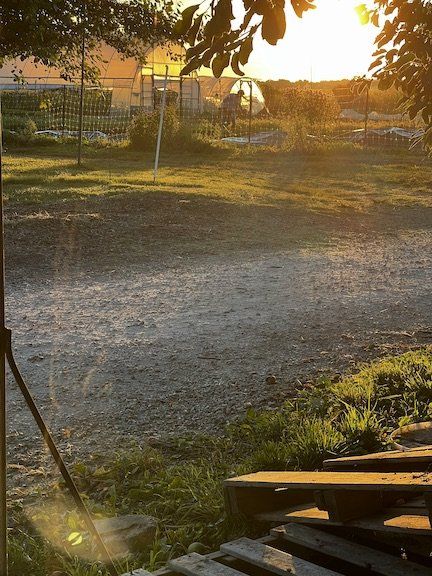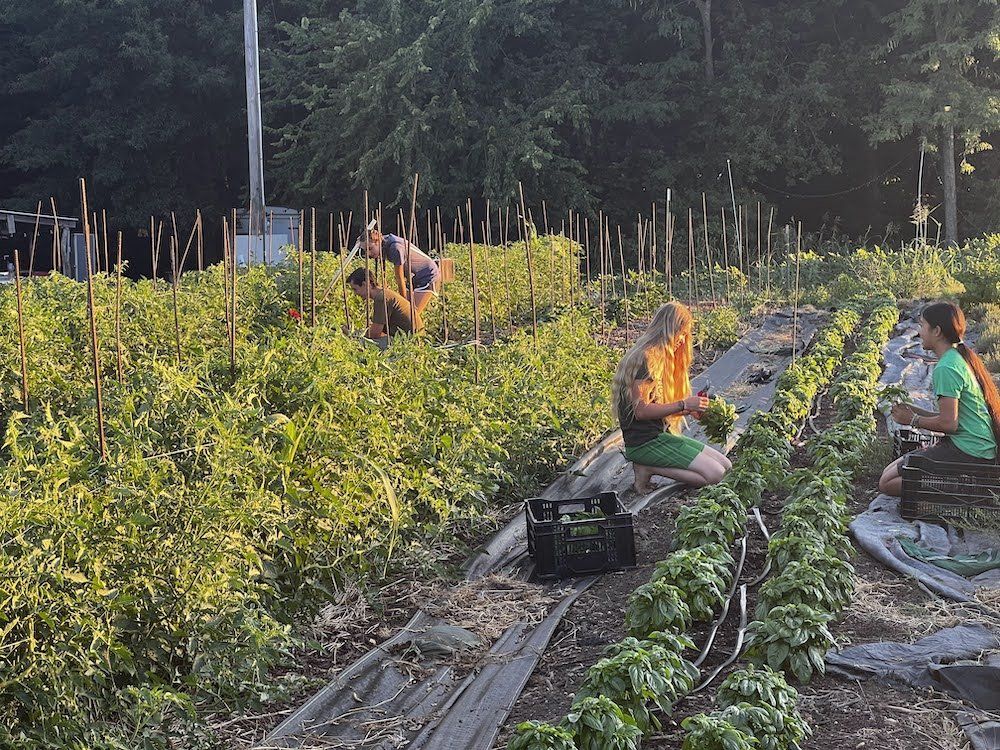First, a little housekeeping; we are constantly trying to find the balance between high quality produce and good use of resources. As a result, at times we may send home produce that is less than perfect aesthetically. We never intentionally send home produce that is less than excellent in terms of taste... you guys are our best defense against this; if and when you ever receive some food from us that disappoints you, please feel free to let us know, we strive to please, and want to know how we're doing.
now, on to the rest of the newsletter:
The three P’s, part 1 (of) 3, Weeding before planting
People often tour our farm to see a sustainable farm in action, either as educational groups, or as part of pizza night. When they arrive on farm, I give a brief introduction; first generation farm family, 20 acres, on farm for 15 years, 2.5 acres in vegetable production, 25,000 s.f. under cover, selling through CSA, Farmers Market of The Ozarks, and a few restaurants, three or four full time farm workers, etc. Then I explain that we try to make all of our decisions through the lens of the three P’s; Planet, People, and Profit.
The Planet is the first consideration we talk about, and it’s the one most people think of when they think of an organic farm; we don’t use synthetic fertilizer, herbicide, or pesticide. Instead we focus on soil health, plant health, rotation, and diversity. On our farm this takes many forms, but for now I’ll give one example; weed control in our salad garden. In our salad garden we start the year by forming beds with a tractor, raising the beds above the surrounding area to ensure good drainage and creating a more worker friendly environment (shorter distance to bend down to pick radishes or cut salad greens). We then amend the soil, using an organic fertilizer, and topping each bed with an inch of compost (usually purchased from the city of Springfield or made on farm). Then, we water thoroughly with a sprinkler set, and cover the whole thing with a thick black tarp. By spreading the tarp we give the weeds two of the three things they need to thrive, moisture and warmth, which makes all those dormant weed seeds germinate and pop their heads above the surface. Fortunately for us, when they arrive at the surface, there is darkness; complete and total darkness, from our black tarp. The baby weed seedlings die without light, and when we peel the tarp off in two to four weeks, we have a seed bed that is all ready to grow beautiful, weed-free greens. In fact, each time we do this, which is after each crop (two or three times a season), we reduce the weed seed bank more, until eventually we start to see almost completely weed free beds of greens and radishes and carrots. So in effect we are weeding the soil, not the crop, without the use of chemical herbicides, excessive tillage, or exposing our soil to erosion. That’s good for the planet, and good for you. Next week, a look at a couple of ways that the second P of sustainable farming ties into the design of our farm.
Thanks for choosing us to be your farmers.
Curtis, Sarah, and the rest of the crew at Millsap Farm



